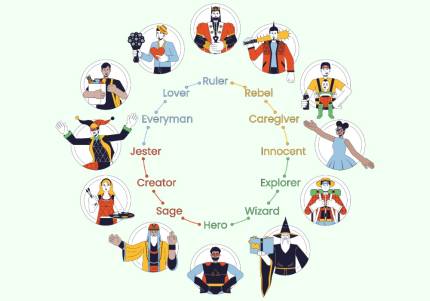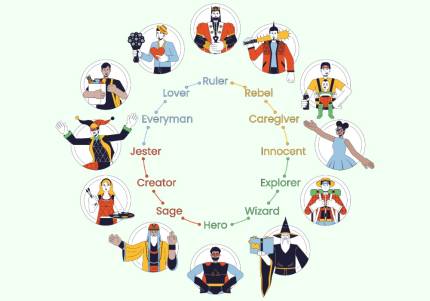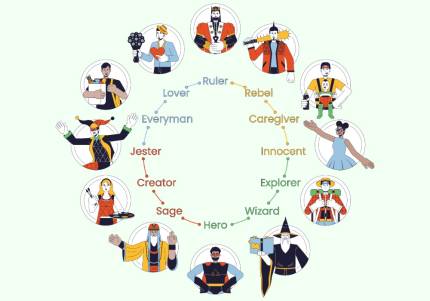How the Myers-Briggs Test for Free Can Improve Your Conflict Resolution Skills
- 6 May 2025

Understanding your natural conflict resolution tendencies begins with exploring your psychological makeup through tools like the Myer-Briggs personality test. A free online personality test can reveal crucial insights about how you perceive information, make decisions, and interact with others during disagreements. The MBTI free test results often illuminate why certain conflicts repeatedly emerge in your relationships and workplaces, providing a foundation for more effective communication strategies. Free personality test online resources have democratized access to psychological insights that were once available only through expensive professional consultations. The free big five personality test offers an alternative framework focused on fundamental traits like openness, conscientiousness, extraversion, agreeableness, and neuroticism that strongly influence conflict behaviors.
The MBTI 16 personalities test categorizes individuals into distinct types based on four preference dichotomies, each approaching conflict with characteristic patterns and blind spots. Taking a free personality quiz can be your first step toward recognizing these patterns and developing more adaptable conflict resolution techniques. The big five personality traits test results often correlate with specific conflict handling styles, such as competition, accommodation, avoidance, compromise, and collaboration. The 16 personalities test by Myers-Briggs provides detailed descriptions of how each type typically responds under stress and during interpersonal tensions. The MBTI personality test for free online typically takes about 15-20 minutes to complete but delivers insights that can improve relationships for years to come.
How Different Personality Types Handle Conflict
The free MBTI personality test categorizes people into 16 types based on preferences for extraversion or introversion, sensing or intuition, thinking or feeling, and judging or perceiving. The Myers-Briggs test - 16 personalities framework has been applied extensively in conflict mediation settings to help opposing parties understand their differing perspectives. A personality trait test can reveal whether you naturally prioritize harmony and relationships or logical consistency and principles when navigating disagreements. The online personality test results often explain why certain conflict resolution approaches feel comfortable while others seem counterintuitive or challenging.
Conflict Resolution Strategies by Personality Dimension
- Extraversion vs. Introversion: How you derive energy affects whether you process conflict externally through discussion or internally through reflection
- Sensing vs. Intuition: Your information-gathering preference influences whether you focus on concrete facts or patterns and possibilities during disputes
- Thinking vs. Feeling: Your decision-making approach determines whether you prioritize objective analysis or maintaining relationships during conflict
- Judging vs. Perceiving: Your orientation toward structure affects whether you seek quick resolution or remain open to emerging solutions
- Developed vs. Undeveloped Functions: The maturity of your cognitive functions significantly impacts your ability to see perspectives beyond your natural preferences
- Stress Responses: Understanding how your personality manifests under stress helps prevent destructive conflict patterns
Conflict Resolution Effectiveness by Personality Type
| Personality Dimension | Natural Strengths in Conflict | Potential Blind Spots | Development Opportunities |
|---|---|---|---|
| Extraversion (E) | Addressing issues directly, expressing concerns openly | May overwhelm introverted types, might not listen deeply | Practicing patience, allowing reflection time |
| Introversion (I) | Thoughtful analysis, listening before responding | May withdraw, needs might remain unexpressed | Practicing assertiveness, communicating needs |
| Sensing (S) | Attention to details, practical solutions | May miss underlying patterns or root causes | Considering long-term implications |
| Intuition (N) | Identifying patterns, creative problem-solving | May overlook immediate practical concerns | Addressing concrete issues before big picture |
| Thinking (T) | Logical analysis, objective perspective | May neglect emotional aspects of conflict | Acknowledging feelings, showing empathy |
| Feeling (F) | Maintaining harmony, considering impact on people | May avoid necessary confrontation | Addressing issues directly even when uncomfortable |
The most effective conflict resolvers develop skills beyond their natural preferences, allowing them to adapt their approach to different situations and personality types. By understanding your default conflict style through personality assessments, you can intentionally develop complementary skills that enhance your relationship management capabilities. Whether in workplace disputes, family disagreements, or community conflicts, personality awareness provides a foundation for more effective and empathetic resolution strategies.
Rather than using personality insights to categorize or judge others, the most productive approach leverages this knowledge to increase mutual understanding and create conflict resolution processes that accommodate diverse perspectives. When both parties in a conflict understand each other's personality-based needs and communication styles, they can design resolution strategies that address core concerns while respecting psychological differences.



